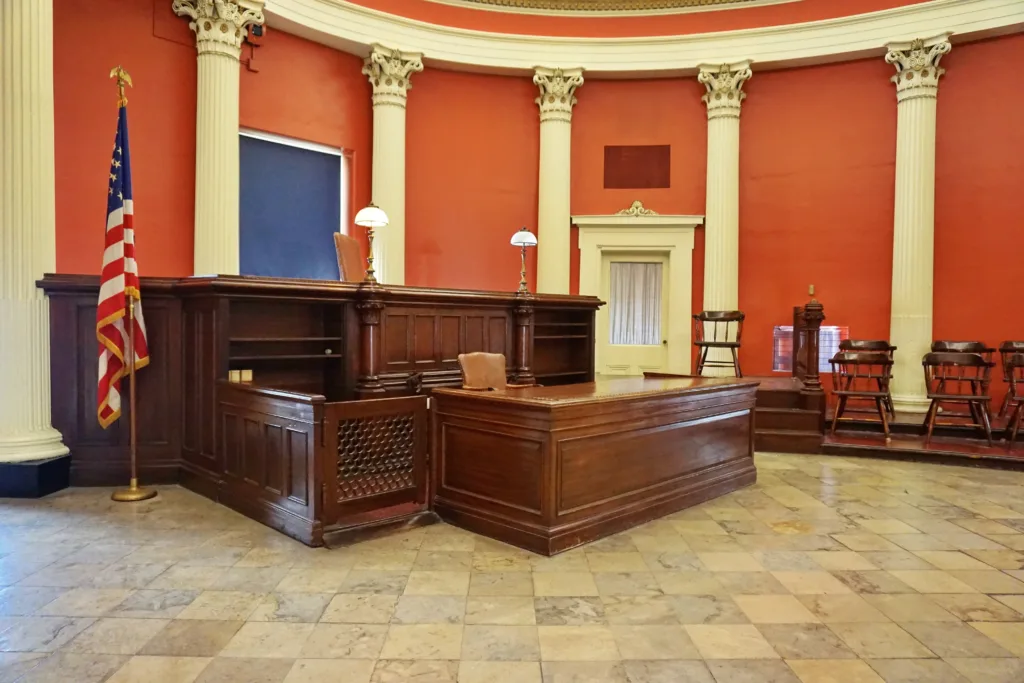When it comes to courtroom proceedings, objections are a common occurrence. During a trial, when one party objects to a question or piece of evidence presented by the other party, the judge must make a ruling on whether to sustain or overrule the objection. This ruling can have a significant impact on the outcome of the trial.
Overruling an objection means that the judge has decided against the objection and the evidence or question can be presented to the jury. This typically occurs when the evidence or question is deemed relevant and admissible in the case. For example, if an attorney objects to a witness’s testimony on the grounds that it is hearsay, the judge may overrule the objection if the testimony is deemed to be an exception to the hearsay rule.
On the other hand, sustaining an objection means that the judge has agreed with the objection and the evidence or question cannot be presented to the jury. This typically occurs when the evidence or question is deemed irrelevant, immaterial, or inadmissible. For example, if an attorney asks a witness a leading question, the opposing attorney may object on the grounds that it is leading and the judge may sustain the objection.
It is important to note that sustained objections do not necessarily mean that the evidence or question is entirely excluded from the trial. Instead, the attorney may rephrase the question or present the evidence in a different manner to comply with the judge’s ruling. This ensures that the jury only hears admissible evidence and prevents any unfair prejudice from affecting the outcome of the trial.
The difference beween overruled and sustained objections in a trial can have a significant impact on the outcome of the case. Understanding the rules of evidence and the grounds for objections is crucial for attorneys to effectively present their case and protect their client’s interests.
Why Do Judges Say Sustained?
Judges say “sustained” when an objection is approved and the question cannot be asked or answered. This means that the judge agrees with the objection raised by one of the parties and rules in favor of disallowing the question. When the judge finds the question improper or irrelevant, he/she will sustain the objection. It is a common legal term used in courtrooms to indicate that the objection has been approved. On the other hand, if the judge disagrees with the objection, he/she will “overrule” it, which means the question can be asked or answered.

What Does It Mean To Be Overruled?
To be overruled means that a decision or ruling made by a lower authority has been reversed or set aside by a higher authority. This can happen in various contexts, such as in a court of law where a judge may overrule an objection made by an attorney, or in a business setting where a manager may overrule a decision made by a subordinate. Essentially, being overruled means that a previous decision or action has been invalidated or deemed incorrect by a higher authority.
What Are The 3 Types Of Objection?
The three types of objections that are commonly used during trial testimony are hearsay, leading, and relevancy. Hearsay objection is made when a witness testifies about a statement made by someone else that is beng offered as evidence to prove the truth of the statement. Leading objection is raised when an attorney asks a question that suggests the answer or puts words in the witness’s mouth. relevancy objection is made when the evidence being presented is not relevant or related to the case at hand. These three types of objections can significantly impact the outcome of a trial and are essential tools for attorneys to use in ensuring a fair and just proceeding.
What Can Be Sustained Or Overruled In Court?
In court, objections can be made by attorneys to cetain evidence or testimony presented by the opposing party. These objections can be sustained or overruled by the judge. If an objection is sustained, it means that the judge agrees with the objection and the evidence or testimony is not allowed to be presented or considered by the jury. On the other hand, if an objection is overruled, it means that the judge allows the evidence or testimony to be presented and considered by the jury. The decision to sustain or overrule an objection depends on various legal factors, including the relevance, credibility, and admissibility of the evidence or testimony.
Conclusion
The distinction between overruled and sustained objections is crucial in the courtroom. When a judge overrules an objection, it means that the evidence is deemed admissible and can be presented to the jury. On the other hand, a sustained objection means that the evidence is not admissible and cannot be used during the trial. It is essential for lawyers to understand the rules of evidence and to make objections when necessry to ensure that only relevant and trustworthy evidence is presented to the jury. By being aware of the difference between overruled and sustained objections, lawyers can effectively argue their case and protect their clients’ rights in the courtroom.
